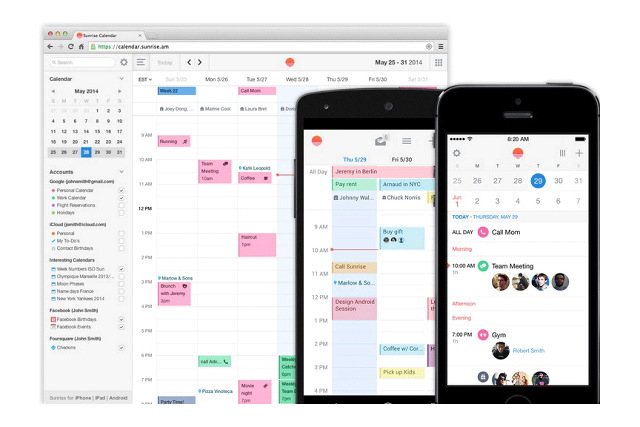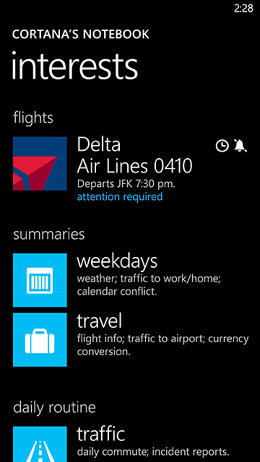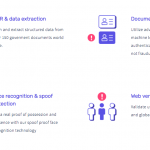Microsoft’s New App Strategy: Turning Google Into A Dumb Pipe
Microsoft doesn’t just want its hands on every operating system. It also wants eyes in every cloud.
If you had made a list a couple of years ago of all the things you’d never expect Microsoft to do, it might have included a number of items.
Full-blown Office for iOS and Android? Sounds unlikely. Free major Windows upgrades for consumers? Not going to happen. Writing new apps designed exclusively for someone else’s operating system? Nope. Generally caring less about selling Windows licenses and more about selling cross-platform services? Not in Microsoft’s character.
And yet all of those things have happened.
Your list might not even have bothered to broach anything along the lines of Microsoft’s recent purchase of the email app Acompli and rumored acquisition of Sunrise Calendar. Both apps play host to rival services like Gmail, Google Calendar, iCloud, and Yahoo Mail, so it’s not obvious why Microsoft would want them as part of its push to bring Microsoft services to other companies’ operating systems.
And yet, when you consider everything Microsoft has said and done over the last year, under CEO Satya Nadella, the company’s new strategy goes deeper than pushing its own services on rival platforms. What Microsoft really wants to do—and what apps like Sunrise and Acompli enable—is to create a new kind of service that sits above all the others. Essentially, it’s trying to turn its cloud competitors into dumb pipes.
Pass The Data, Please
Sunrise and Acompli have more in common than just devoted followings. Both apps attempt to take your existing data and provide additional services on top.
Sunrise, for instance, can hook into TripIt and Evernote accounts to automatically add reminders and flight details to your calendar. You can also connect to Facebook for birthday and event reminders, or to Songkick for upcoming concerts.

Acompli (which Microsoft just re-released as Outlook for iOS and Android) makes it easier to manage email with scheduled reminders and a “focus” view for important messages. It can also connect with cloud storage services such as Dropbox and Google Drive for sending and saving files, and it even provides a list of all your recent attachments.
In both cases, you can use those additional services regardless of who’s providing your email or calendars. The fact that you’ve hitched your wagon to iCloud mail or Google Calendar ceases to matter. Acompli’s new Outlook branding seems symbolic in that regard; to Microsoft, all email is now Outlook, even if it comes from another company’s servers.

The idea of remixing and reinterpreting data is becoming increasingly important to Microsoft. You can see it in the way Nadella talks about Cortana, the virtual assistant that competes with Google Now and Apple’s Siri:
“[T]oday the Cortana app on my Windows Phone merges data from highway sensors and my own calendar and simply reminds me to leave work to make it to my daughter’s recital on time,” Nadella wrote in a July memo. “In the future, it will be even more intelligent as a personal assistant who takes notes, books meetings, and understands if my question about the weather is to determine my clothes for the day or is intended to start a complex task like booking a family vacation.”
Microsoft also talked about this type of intelligence in its nascent Microsoft Health platform, which can take in fitness data from other services and provide insight in return. Last October, for instance, Microsoft vice president of Devices and Studios Yusuf Medhi told The Verge how Microsoft’s Intelligence Engine will offer more than just basic fitness data: “On days when I have a lot of meetings, do I sleep a lot? On days when I eat breakfast do I run faster, or slower?”
Going Cross-Cloud
Here’s the problem, though: While all of these ambitions rely on users willingly signing up for Microsoft services and feeding in their personal data, getting people to switch email and calendar providers is notoriously difficult. Gmail took first place in the webmail wars a couple of years ago, and isn’t going anywhere. New iPhone buyers might decide to align themselves with iCloud. On their own, Microsoft’s email and calendar services will always have limited reach.
These challenges aren’t unique to Microsoft, however. Google’s own virtual assistant, Google Now, also leans heavily on email and calendar data for much of its smarts—but only if you use Gmail and Google Calendar. If you’re committed to other services like iCloud, Yahoo Mail, or Exchange, Google Now is considerably less useful.
Microsoft may be moving beyond simply offering its own services on rival platforms like iOS and Android. What apps such as Acompli and Sunrise can do is let the company reach across cloud services with its own intelligence, essentially becoming the mega-service that sits on top.
Nadella alluded to this strategy in his July memo. “We will shift the meaning of productivity beyond solely producing something to include empowering people with new insights,” he wrote. “… Productive people and organizations are the primary drivers of individual fulfillment and economic growth and we need to do everything to make the experiences and platforms that enable this [ubiquitously].”
Sunrise and Acompli’s aspirations are similar, which is what makes them logical acquisitions for Microsoft. Just as importantly, they have sizable bases of users who are on board with the vision, and who have granted the apps with access to their vital email and calendar data in hopes of making sense of it all. This type of intelligence, and these kinds of users, will be essential to Microsoft’s future.
(178)














